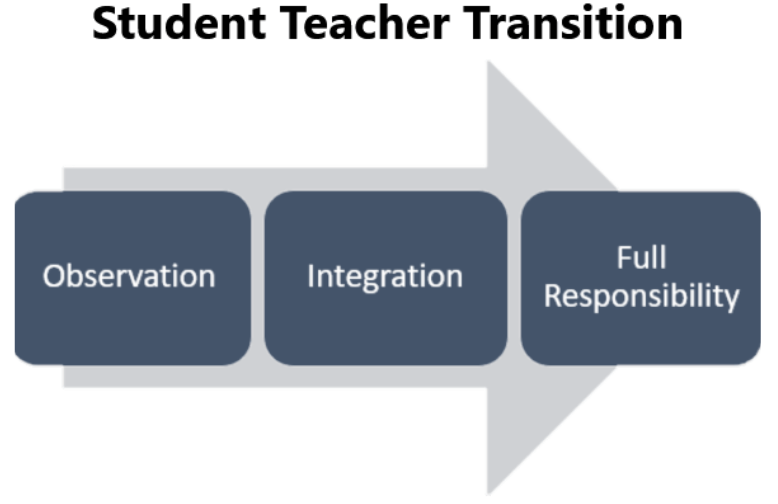Preparing for a Student Teacher
You have weighed the benefits and costs of having a student and decided to help advance the music education profession by opening your classroom to a student teacher. Now that you have been assigned a student there are several things you may want to consider as you prepare for your student teacher’s first day. In this section, we will explore three areas that may help to craft a welcoming environment for this person, who is no doubt as nervous about this journey as you are.
Philosophical Considerations
The sponsoring institution has their view of what student teaching is and the student teacher has their own view as well. But will also be helpful to clarify your own beliefs regarding the student teaching process.
Physical Space
Your classroom is your space. It may be the only place in your work world that you have complete control over. You alone decide how to decorate, arrange the chairs, and many other decisions that personalize that space to you. The addition of a student teacher requires you to consider how you are going to modify your space to accommodate a second adult in your “sacred” space. How you handle this transition will set much of the tone for your working relationship with your student teacher. Additionally, how you allocate space to your student teacher will communicate to your students how you view the new adult in the space.
Transition Considerations
When your student teacher arrives, the classroom will be 100% yours. You have a routine, you control the direction of all the instruction and the students identify with you as the responsible adult in the room. The goal of student teaching is to allow the student teacher to experience being “in control” of their own classroom. In order for this experience to take place, you should develop a plan for how to transfer responsibilities to this new adult in your classroom. The experience exists along a continuum which moves at a different pace depending on the expectations of the cooperating teacher and student teacher.

